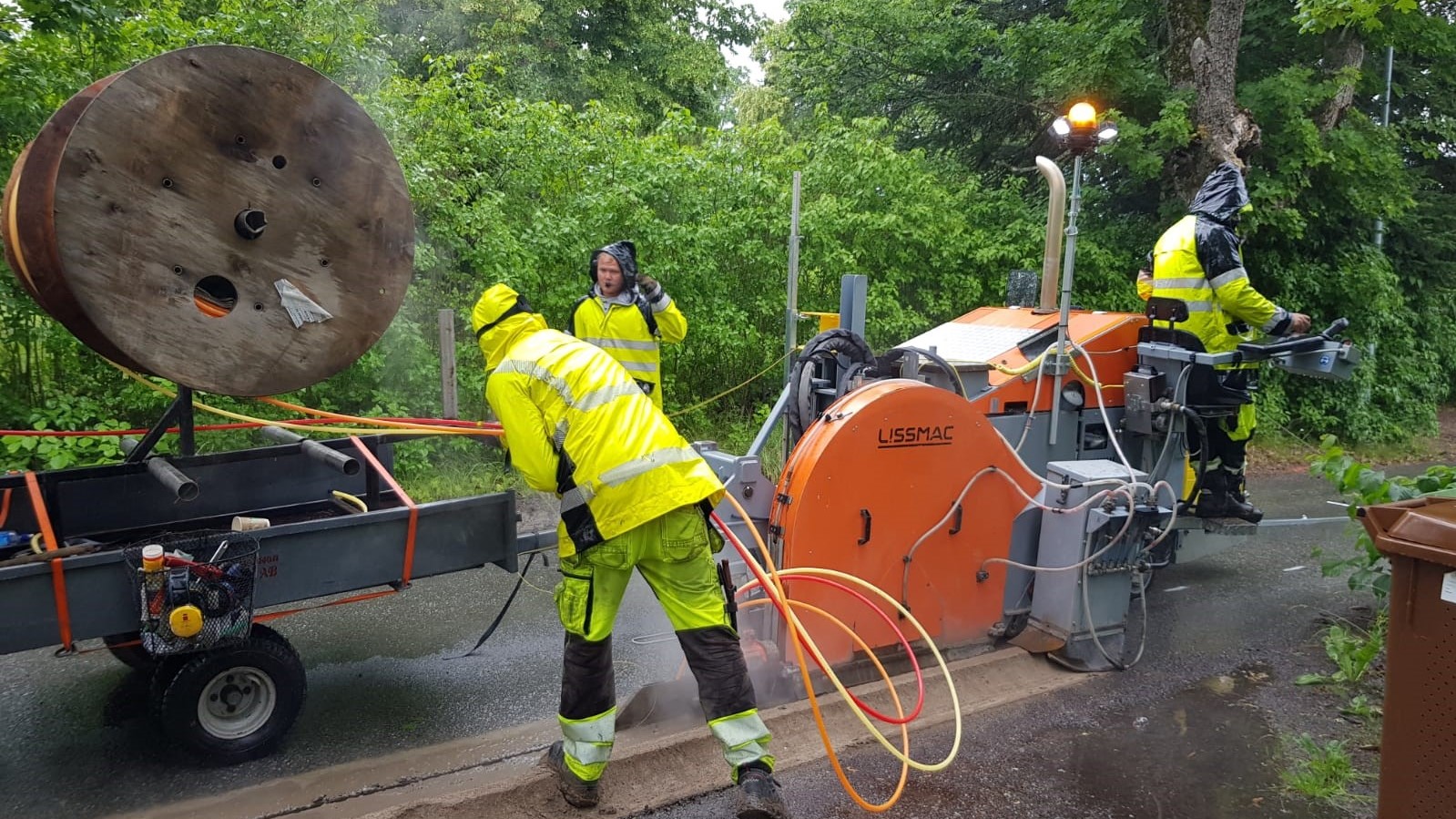Openreach plans to accelerate rural fibre rollout with new tech
Diamond cutter and remote nodes could speed up deployment by months

Openreach has revealed a number of technical innovations it says will make fibre deployment more rapid and more economical in rural areas, helping the government to achieve its ambitious ultrafast broadband coverage targets.
Specifically, BT is testing a new ‘diamond cutter’ digging tool which can slice through pavements and roads and lay tubing for fibre. It is capable of installing 700 metres of cable every day – more than 20 times what can be achieved with current excavation methods.
Openreach is also testing ‘remote nodes’ that allow engineers to rollout fibre cables from existing, adapted roadside cabinets. Broadband-boosting equipment extends the reach of cables by 1.5 times, capable of connecting more than 1,000 premises.
- Government details £5bn for full fibre
- Openreach recruits more fibre engineers
- Johnson fibre plan 'needs work'
Openreach fibre
When combined, these innovations could reduce the time it takes to rollout fibre by several months, reducing the cost of covering rural areas.
The trial area covers 50,000 premises in villages and towns across the UK, with locations chosen to ensure Openreach covers a wide variety of geographical areas and potential use cases. Some areas have already been covered and building work for half the sites should be completed by March.
So far, Openreach has connected 1.8 million properties to the network – half of which were added over the past year – and is targeting 15 million by the mid-2020s. This target was expanded earlier this year.
The current government target for switching off the UK’s copper network is 2033, but Prime Minister Boris Johnson wants this brought forward to 2025. The industry has said such an ambitious goal isn’t out of the question – but only if regulations are favourable and government financial support is present.
Are you a pro? Subscribe to our newsletter
Sign up to the TechRadar Pro newsletter to get all the top news, opinion, features and guidance your business needs to succeed!
The government believes that up to 80 per cent of the country will be covered by commercial deployments from BT and others, but wants industry to go further. Some have placed the total cost of extending coverage nationwide – including rural areas – at £30 billion.
Openreach’s latest trial is evidence that it believes it can connect more parts of the country – if it is given economic support. Last week, the government detailed a £5 billion package to extend fibre coverage.
“At Openreach, we’ll never be just a city fibre provider. We’ve always worked hard to improve connections to isolated, less commercially attractive communities through inventive engineering and effective funding partnership models,” said Openreach CEO Clive Selley.
““In recent years we’ve been extending our full fibre network into rural areas – mostly in partnership with local authorities and Government - but the economics are clearly challenging and we want to do more. We know that around 10 per cent of the country will need to the support of public subsidy, but these trials will help us test a bunch of new techniques that could help us in other rural areas.
“The trials will also give us a much clearer picture of what the technical challenges in these kinds of rural areas are. We hope they’ll go a long way towards developing the tools, skills and innovations required to make sure that nobody’s left behind in the full fibre future.”
- Here are the best BT broadband deals for October 2019
Steve McCaskill is TechRadar Pro's resident mobile industry expert, covering all aspects of the UK and global news, from operators to service providers and everything in between. He is a former editor of Silicon UK and journalist with over a decade's experience in the technology industry, writing about technology, in particular, telecoms, mobile and sports tech, sports, video games and media.